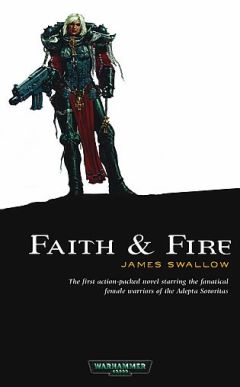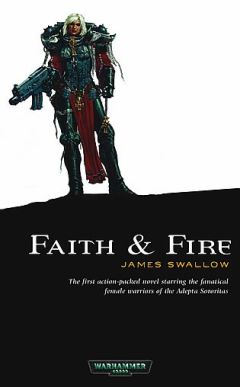Пользователь - WORLDS END
На электронном книжном портале my-library.info можно читать бесплатно книги онлайн без регистрации, в том числе Пользователь - WORLDS END. Жанр: Прочее издательство неизвестно, год 2004. В онлайн доступе вы получите полную версию книги с кратким содержанием для ознакомления, сможете читать аннотацию к книге (предисловие), увидеть рецензии тех, кто произведение уже прочитал и их экспертное мнение о прочитанном.
Кроме того, в библиотеке онлайн my-library.info вы найдете много новинок, которые заслуживают вашего внимания.

Пользователь - WORLDS END краткое содержание
WORLDS END читать онлайн бесплатно
VII
There had come a cablegram from Robbie; he was sailing from New York on the Lusitania, and would be at the Hotel Cecil on a certain day. Of course a summons from Robbie took precedence over all other affairs. Lanny went to town the night before, and telephoned the steamship office to find out at what hour the steamer was due. The boy was sitting in the lobby, reading a book, but looking up every few minutes, and when the familiar sturdy figure appeared in the doorway, he sprang up to welcome his father. It was a hot July morning, and perspiration glistened on Robbie's forehead, but he looked well and vigorous as always, and everything he wore was fresh and spotless.
It had been four or five months since his last trip, and they had a lot of news to swap. At lunch Lanny told about Greece and Africa, and the scene on board the Bluebird. Then he told about his adventures in the slums of London and of Berkshire. The father said: "That's the curse of England. The most depressing thing I ever saw in my life was the people of London's slums spread out on Hamp-stead Heath on a bank holiday; men and women lying together on the ground in broad daylight."
Robbie Budd had come on an interesting errand. The firm had completed a new gun on high-angle mountings, to be used for protection against airplanes; the season's best-seller in the armaments trade, he predicted. It would mean another battle with Zaharoff, because Vickers already had one, but it wasn't nearly so good and couldn't be fired so fast. "Are we going to wipe him out?" asked the boy. eagerly; and Robbie said they would if there was such a thing as justice in the world. He said this with one of his boyish grins, and added his fear that there wouldn't be any in England for Budd's.
They made themselves comfortable in their suite. Robbie got a bottle of whisky out of his suitcase, and ordered soda and ice - the London hotels were quite "American" now, and ice was one of the signs. For Lanny there was ginger beer, the father having asked him to wait many years before he touched liquor, or smoked, or learned to play poker. He said he wished he had waited longer himself. Lanny was interested to note in how many ways parents expected their children to be wiser than themselves.
Robbie telephoned the manager of Budd's London office, and while waiting for him to arrive, they talked about the English and their Empire. Lanny knew the country now and took a personal interest in it, but he found that his father didn't share his enthusiasm. Robbie had been in business competition with the English, which was different from being a guest in their well-conducted homes. "They are sharp traders," he said, "and that's all right, but what gets your goat is the mask of righteousness they put on; nobody else sells armaments for the love of Jesus Christ." The Empire, he added, was run by a little group of insiders in "the City" - the financial district. "There are no harder-fisted traders anywhere; power for themselves is what they are out for, and they'll destroy the rest of the world to get and keep it."
Lanny had got the impression that they liked Americans; but Robbie said: "Not so. All that talk about 'Hands across the sea,' don't let it fool you for a moment. They're jealous of us, and the best thing they can think of about us is that we're three thousand miles away."
Lanny told about a talk with Sir Alfred, in which the baronet had deplored the great amount of graft in American political life, and had expressed satisfaction because they had nothing of the sort in Britain. "They have a lot more," said the munitions salesman, "only they call it by polite names. In our country when the political bosses want to fill their campaign chest, they put up some rich man for a high office - a 'fat cat' they call him - and he pays the bills and gets elected for a term of years. In England the man pays a much bigger sum into the party campaign chest, and he's made a marquess or a lord, and he and his descendants will govern the Empire forever after - but that isn't corruption, that's 'nobility'!"
You could see the effect of such a system in the armaments industry, Robbie went on to explain; and he didn't have to do any guessing, he was where he could watch the machinery working. "I've come to England with a better gun than Vickers is making; but will the British Empire get that gun? I'm going to do my best, but I'll make a private wager that it'll be the Germans who come across first. The reason is Zaharoff and his associates. They're the besL blood, so called, in England. On the board of Vickers are four marquesses and dukes, twenty knights, and fifty viscounts and barons. The Empire will do exactly what they say - and there won't be any 'graft' involved."
VIII
Robbie went about his important affairs, while Lanny learned to know the pictures in the National Gallery. Also he met Kurt's uncle, a stout and florid gentleman who told him about rubber plantations in the Dutch East Indies, and took them to lunch at a place where they could have a rijstafel. Rick came to town over the week-end, and they went to the opera and concerts, and to a cricket match. They had lunch with Robbie, who was glad Lanny had picked two such intelligent fellows as friends; he said he would take them to a place that would give them a thrill - the War Planes Review now being held on Salisbury Plain. Robbie had been invited by an army captain who had to do with his negotiations.
The boys were delighted, of course. They had been hearing a lot about the picturesque idea of battles fought in the air. The four of them were up early in the morning, and took a train for Salisbury, some eighty miles west of London, where Captain Finchley had a car to meet them and bring them to the camp. They spent the whole day wandering about seeing the sights. The Royal Flying Corps had put up sheds for seventy planes, and most of them were in the air or lined up on the field, a spectacle the like of which had never before been seen. The officers, of course, were proud of the enterprise and might of Britain.
The largest and newest of the machines was a Farman, and the men dubbed it "the mechanical cow." It was a frail-looking structure, a biplane spreading nearly forty feet across, the wing frames of light spruce and the surface of canvas, well coated and waterproofed. The flier sat in the open, and of course a mighty gale-blew around him when he was in the air, so he was muffled up and wore a big helmet. The principal service expected of him was to obtain information as to enemy troop movements and the position of artillery; some planes were provided with wireless sets, others with photographic apparatus. That lone fellow up there was going to be pretty busy, for he also had a carbine and a couple of revolvers with which to defend himself; or he might have an explosive bomb attached to a wire cable, the idea being to get above an enemy plane and run the cable over him.
Many planes were diving and swooping, acquiring the needed skill. Some were learning a new art called "flying in formation"; others were practicing dropping objects upon stationary targets. The visitors watched them until their eyes ached, and the backs of their necks. Every now and then a new plane would take off, and the moment when it left the ground always came to the beholder as a fresh miracle: man's dream of ages realized, the conquest of the last of the elements. The visitors were introduced to some of the pilots, well-padded fellows who of course made it a matter of pride to take it all in the day's work; going up was no miracle to them, and flying around was, to tell the truth, a good deal of a bore, once you got the hang of it. One place in the sky was exactly like another, and the ground beneath was no more exciting than your parlor rug. They were practicing night flying - and that, they admitted, was something that kept you awake. Also, they were very proud because they had succeeded in "looping the loop" in a biplane, for the first time in history.
Lanny was interested to see the effect of all this upon his English friend. Eric Vivian Pomeroy-Nielson, young man of the world whose "note" was sophistication and whose motto was nil admirari, was stirred to eloquence by the idea of military aviation. He remarked to Lanny's father that after all England wasn't as backward as the Americans might have thought. He began asking technical questions of Captain Finchley and the fliers; he wanted to know if it wouldn't be possible to mount a machine gun in a plane, and they told him that the French were trying it. "That would be a fight to put a man on his mettle!" exclaimed Rick; a surprising remark from a youth who had been heard to speak of army men as "troglodytes."
Captain Finchley was pleased by this enthusiasm. "I wish more English boys felt that way," he remarked; "the failure of the recent recruiting is a cause of deep concern to all friends of the Empire."
Robbie Budd took the occasion to speak about the effect which this new kind of warfare was bound to have upon the position of Englishmen. It deprived them of the advantage of their island solitude. Planes were now flying the Channel, and the Americans had even devised a sort of catapult that could launch a plane from a ship. It was certain that in the next war bombs would be dropped upon munitions centers and factories; and guns that could be fired at planes and airships would surely have to be mounted at vital points. Lanny understood that his father was giving a sales talk - Captain Finchley was on the board which had to decide about the Budd gun with high-angle mountings. Robbie had told his son the previous evening that they were trying to "stall" him; they wouldn't say they would buy the gun, yet they were obviously worried by the idea of his taking it anywhere else.
IX
On their way back to town in the evening the four talked about what they had seen, and the likelihood of these dangerous contrivances being actually put to the test. Kurt Meissher was worried by a letter he had received from home; the situation in the Balkans was more serious than anybody in England seemed to realize. Robbie said, yes, but it was always that way; the English were an easygoing people and left problems for others to solve as much as possible. This was just one more crisis.
"But,'' exclaimed Kurt, "do the English or anybody else expect the Austrians to let Serbian hooligans incite the murder of Austrian rulers on Austrian soil?"
"The diplomats will get together and stop it," Robbie told him soothingly. Nothing to worry about.
"But it is said that the Russians are backing the Serbs!"
"I know; they're always shoving one another about. The Russians say: 'You let my Serbian friends alone.' The Germans say: 'You let my Austrian friends alone.' The French say: 'You let my Russian friends alone' - so it goes. They've been making faces at one another for hundreds of years."
"I know it, Mr. Budd - but they've been going to war, too."
"The world has been changing so fast that it no longer pays to go to war, Kurt. The nations couldn't finance a war; it would bankrupt them all."
"But," argued Kurt, "when people get angry enough, they don't stop to calculate."
"The masses don't, but they don't have the say any more. It's the financiers who decide, and they're first-class calculators. What's happened is, we've made weapons so destructive that nobody dares use them. Just to have them is enough." Robbie paused for a moment, and smiled. "Did Lanny ever tell you about his meeting with Zaharoff? The old man was worried by the thought that his armaments might some day be put to use; I suggested to him that the ideal of civilization was to spend all our energies making things we never meant to use." Robbie chuckled, and they all chuckled with him, though a bit dubiously.
A few days later Lanny set out for France to join his mother, and Robbie was packing up his Budd gun, preparatory to taking it to Germany, in an effort to wake the British up - or so he confided to his son. On that day King George was reviewing the might of the British navy off Spithead. His flagship was the Iron Duke, a dreadnought that could shoot away fifty thousand dollars in a single minute. Included in its armament were two twelve-pounder guns with high-angle mountings against airplanes. On that day . . .
It was the twentieth of July 1914.
1О
La Belle France
I
MRS. EMILY CHATTERSWORTH was the widow of a New York banker who had once held great power, controlling railroads and trust companies and what not; he had become involved in some Congressional investigation - it had been a long time ago, and nobody remembered just what it was, but the newspapers had exhibited bad manners, and the banker had decided that his native land was lacking in refinement. His widow had inherited his fortune and, being still good-looking, was described by Sophie, Baroness de la Tourette, as "an island entirely surrounded by French suitors." Perhaps the country's laws regarding the property rights of married women were unsatisfactory to Mrs. Emily; anyhow, she had remained for years the sole mistress of Les Forкts, as her country estate was called.
The chвteau was in French Renaissance style, a four-story structure of gray stone, built at the head of a little artificial lake. There was an esplanade in front, resembling the docks of a port, complete with several small lighthouses; when the lights were turned on at night the effect was impressive. At the front of the house, beyond the entrance drive, was a garden, the central feature of which was a great fleur-de-lis made of gold and purple flowers. Surrounding the place were smooth lawns shaded by chestnut trees, and beyond them were dark forests of beeches, for which the place had been named. In them were deer and pheasants, and in the kennels were dogs used for hunting in the fall. Among other interesting things was an orchid house, in which you might examine the strange and costly products of the jungles of South America, for as long as you could stand the moist heat in which they throve.
The rooms of this chвteau were splendid, and had tapestries and works of art which connoisseurs came to study. Mrs. Emily knew what she had, and spoke of them with authority. She lived and entertained in the French manner, conducting what was called a salon - an arduous undertaking, a career all in itself. It meant inviting a number of celebrated men at regular intervals and giving them a chance to air their wit and erudition before others. Each one of these personages was conscious of his own importance, and resentful of the pretended importance of his rivals; to know who could get along with whom, and to reconcile all the vanities and jealousies, took skill and energy enough for a diplomat guarding the fate of nations.
Beauty Budd had very few pretensions to wit, and still fewer to erudition, but she possessed a treasure appreciated in any drawing room - she was easy to look at. She also possessed a full supply of womanly tact, and was naturally kind, and didn't quarrel with other ladies or try to take away their men. The weaker sex was supposed to do little talking at a salon; as among the fowls, it was the males who displayed the gorgeous plumage and made the loud noises. The company did not break up into groups, as was the custom in English and American drawing rooms. There would be a super-celebrity who would set the theme and do most of the expounding; the other celebrities would say their say, and the function of the hostess was to supervise and shepherd the conversation. The other ladies listened, and did not interrupt unless they were quite sure they had something supremely witty that could be uttered in a sentence or two. Generally they thought of it too late, and for that misfortune the French had a phrase, esprit de l'escalier, that is to say, staircase wit.
Похожие книги на "WORLDS END", Пользователь
Пользователь читать все книги автора по порядку
Пользователь - все книги автора в одном месте читать по порядку полные версии на сайте онлайн библиотеки My-Library.Info.



